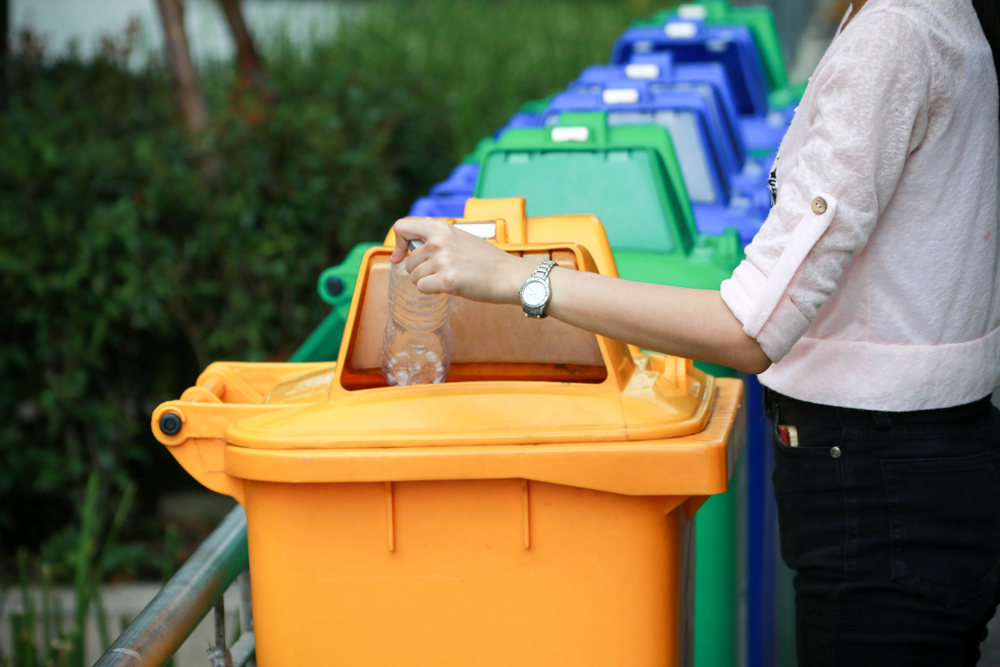
“The most significant move from the government to check the spread of COVID-19 has been the imposition of ‘complete lockdown’ in the country. Prime Minister Narendra Modi, in his address to the nation on March 24, 2020 announced a countrywide ‘complete lockdown’ for 21 days effective from 12 AM - March 25, 2020. Keeping the transmission capability of corona virus in consideration, such a step was imperative. The Prime Minister, in his address, also touched upon a number of points including the gravity of the situation in developed countries like USA, Italy and France. The PM also announced a package of Rs. 15,000 crores to fight COVID-19, training programmes for new and existing medical/para-medical staff and roping in of the private sector labs/hospitals. The PM also assured the country about the supply of essential items during the lockdown.”
The world is in the middle of battling one of the world’s deadliest virus outbreaks. The coronavirus or COVID-19, as it is popularly known, has already affected more than 4,00, 000 people in more than 167 countries. Sadly, COVID-19, in a short span of time, has claimed more than 17,000 lives.
In these times of distress, the importance of efficient waste-management techniques cannot be overemphasized, especially for a country like India, where more than 163 million people do not have access to clean drinking water and only 50 per cent of the households report using sanitation facilities.
COVID-19 and WASH
Lack of Water Sanitation and Hygiene (WASH) best practices have an undeniable link to the spread of diseases like COVID-19. The spread of Ebola in Africa and its compounded impact due to sub-optimal sanitation facilities is a case in point.
The need for clean drinking water
The United Nations, on the recently celebrated World Water Day (March 22) observed that –
“Poor water infrastructure is a greater risk than the coronavirus”.
Improving water and sanitation has clear benefits. As per the UN World Water Development Report, the return on investment in water and sanitation can be high, with a global average benefit–cost ratio of 5.5 for improved sanitation and 2.0 for improved drinking water, when broader macroeconomic benefits are taken into account. Thus, there is an urgent need to improve our water management practices and check water pollution from various sources like industries, agriculture and household wastewater.
The sewage problem
The lack of efficient sewage-management infrastructure can exacerbate the impact of epidemics and pandemics such as COVID-19. Untreated sewage wastewater can contribute to widespread impact of the diseases such as COVID-19. As per a report published by Central Pollution Control Board (CPCB) in March 2015, the sewage generation from urban areas in the country is estimated at 61,948 million litres per day (MLD), against which a sewage treatment capacity of 23,277 MLD, or 37 per cent of the sewage generation is available. The current sewage treatment capacity is clearly sub-optimal and will lead to faster spread of diseases like COVID-19. In simple terms, good hygiene habits – like the use of soap and sanitisers are remedial, short-term measures at best. An overhaul of the current sewage treatment capacity, keeping the economic and human resource benefits in mind, is the need of the hour.
Steps taken by the government of India to fight COVID-19
Complete lockdown –
The most significant move from the government to check the spread of COVID-19 has been the imposition of ‘complete lockdown’ in the country. Prime Minister Narendra Modi, in his address to the nation on March 24, 2020 announced a countrywide ‘complete lockdown’ for 21 days effective 12 AM - March 25, 2020. Keeping the transmission capability of corona virus in consideration, such a step was imperative.
The government of India has taken various other steps to tackle the pandemic of COVID-19. Some of them are highlighted below:
1. The Ministry of Corporate Affairs has declared that spending of Corporate Social Responsibility (CSR) funds for COVID-19 is eligible for CSR activities. Funds may be spent on activities relating to promotion of healthcare, including preventive health care and sanitation and disaster management.
2. The Technology Development Board has decided to encourage innovation in the areas of fighting COVID-19 by means of providing financial assistance (soft loans, equity participation etc.) to promising technologically innovative solutions.
3. A 'S&T Core-team on COVID-19’ of experts has been set up, who will reach out to each of the clusters, help define problems that need urgent, immediate solutions, work with academia and industry to help link teams to solve these problems speedily.
4. An empowered committee co-chaired by Dr. Vinod Paul, Member NITI-Aayog and Professor K. Vijay Raghavan, Principal Scientific Advisor to Government of India was constituted to co-ordinate, amongst science agencies, scientists and regulatory bodies and take speedy decisions.
Contributions by other government institutions
Various government institutions are involved in the process of finding means to cushion the impact of COVID-19 including the following:
1. Indian Council of Medial Research (ICMR) – The ICMR is at the fore-front of finding short-term and long-term solutions to tackle the COVID-19 pandemic. The ICMR has been continuously issuing advisories, notifications and guidelines to hospitals and the public in general. The ICMR has also constituted a National Task Force for COVID-19 which has recommended the use of hydroxy-chloroquine for high risk population. The ICMR has also issued detailed guidelines for testing of COVID-19 in private laboratories in India and has recommended that the maximum cost of testing for COVID-19 should not increase Rs. 4500 (Rs. 1500 for screening test and Rs. 3000 for confirmation test).
2. Council of Scientific & Industrial Research (CSIR) – The CSIR labs across the country have been actively pursuing and encouraging research for a medicine for COVID-19 and other solutions. (CSIR)-Indian Institute of Chemical Technology (IICT) has joined hands with Cipla to manufacture COVID-19 drugs. Also, CSIR lab in Himachal Pradesh has developed a bio-sanitiser to battle COVID-19.
3. IIT Delhi – IIT Delhi has developed a test kit which could substantially reduce the cost of diagnosing COVID-19. The kit is currently undergoing clinical trials. Moreover, IIT Delhi has also developed cost effective hand sanitisers “meeting WHO standards”.
4. Department of Biotechnology (DBT) – DBT has invited project proposals for developing diagnostics, vaccines, novel therapeutics, repurposing of drugs or any other intervention to curb the spread of COVID-19.
5. Ministry of Health and Family Welfare, Government of India (MoHFW) – MoHFW has been acting as an ideal interface between the government and the public by regularly updating the general population with the notifications, guidelines and advisories.
6. State governments – ‘Health’ being a state subject under the Constitution of India, active support of state governments is imperative to tackle the menace of COVID-19. Therefore, a number of states have taken steps like complete lockdown, curfews, testing of suspected patients and regular sharing of data with the Central Government.
Moreover, other institutions like the Defence Research and Development Organisation (DRDO) and Department of Pharmaceuticals have joined hands to develop a remedial drug for COVID-19.
Expected actions from other stakeholders
1. Start-ups – India can utilize its effective start-up ecosystem to innovate and produce items required in these times of crisis. A number of start-ups have shown promise as they have developed effective products like masks, cost-effective testing kits, thermal scanners etc.
2. R&D Labs – The R&D labs across the country, both public and private, can join hands by undertaking actions like knowledge sharing, collaborative research etc. and bring in synergy to the efforts against COVID-19.
3. Civil society – The civil society is the most important stakeholders as only the civil society can thwart the biggest threat i.e. community spread by following the advisories regarding ‘social distancing’ and ‘quarantine’ guidelines.
Suggestions by the Office of the Principal Scientific Advisor, Government of India:
1. There is a need for scientists to proactively work together to ensure synergy & develop implementable solutions that health-workers and communities need.
2. Individual scientists, institution leaders and groups of institutions must get together and contribute to containing, mitigating, and pushing back this pandemic.
Conclusion
In these times of crisis, it is necessary that, long-term measures are also contemplated along with the short-term measures. Implementing efficient actions with respect to ‘waste management’ can not only check the current situation from getting exacerbated but also negate such possibilities in future. These measures are most essential as ‘prevention is better than cure’.
- https://www.downtoearth.org.in/news/water/19-of-world-s-people-without-access-to-clean-water-live-in-india-60011
- https://www.orfonline.org/research/towards-a-malnutrition-free-india-63290/
- https://timesofindia.indiatimes.com/gadgets-news/2-iit-delhi-chemistry-lab-technicians-make-50-litres-of-hand-sanitisers/articleshow/74758412.cms
- https://www.theguardian.com/environment/2020/mar/22/water-saving-an-important-but-ignored-weapon-in-solving-climate-crisis-says-un
- https://unesdoc.unesco.org/ark:/48223/pf0000372985.locale=en
- https://economictimes.indiatimes.com/news/science/csir-scientists-develope-hand-sanitiser-without-harmful-chemicals/articleshow/74686862.cms
- https://www.thehindu.com/news/cities/Hyderabad/cipla-csir-iict-join-hands-for-covid-19-drugs/article31092286.ece
- https://theprint.in/science/science-and-tech-ministry-invites-research-proposals-to-help-in-fight-against-covid-19/386962/
- https://www.mohfw.gov.in/pdf/AdvisoryontheuseofHydroxychloroquinasprophylaxisforSARSCoV2infection.pdf
- https://www.mohfw.gov.in/pdf/NotificationofICMguidelinesforCOVID19testinginprivatelaboratoriesiIndia.pdf


